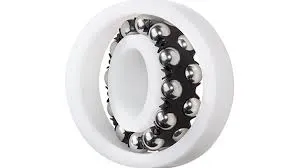
Oct . 20, 2024 09:39 Back to list
roller bearing cup
Understanding Roller Bearing Cups An Essential Component in Modern Machinery
Roller bearings have become an integral part of modern machinery, playing a crucial role in the efficient operation of various mechanical systems. At the heart of these bearings lies the roller bearing cup, a vital component designed to support and house the rollers and ensure smooth rotational movements. In this article, we will explore the significance of roller bearing cups, their types, construction materials, and applications.
What is a Roller Bearing Cup?
A roller bearing cup is essentially the outer race of a roller bearing assembly. It provides a track for the rollers to move smoothly within while supporting the load exerted on the bearing. The design and structure of the cup are fundamental to the overall performance and reliability of the bearing. The shape, material, and surface finish of the cup determine how well the bearing can handle both radial and axial loads.
Types of Roller Bearing Cups
Roller bearing cups come in various designs to cater to different types of roller bearings. The primary types include
1. Cylindrical Roller Bearing Cups These cups have a simple cylindrical shape and are used in applications where radial loads are predominant. Their straightforward design allows for easy installation and maintenance.
2. Spherical Roller Bearing Cups Designed to accommodate misalignment, spherical roller bearing cups have an inner raceway that is curved. This feature allows them to handle both radial and axial loads, making them suitable for heavy machinery and equipment.
3. Tapered Roller Bearing Cups With a conical shape, tapered roller bearing cups facilitate both radial and axial load handling. They are commonly used in automotive applications, where precise alignments are critical for performance and durability.
Construction Materials
The materials used to manufacture roller bearing cups are critical in ensuring their longevity and performance. Common materials include
roller bearing cup

- Steel High-strength steel is the most widely used material due to its excellent load-bearing capacity. Steel cups are treated with processes like hardening to enhance their durability and resistance to wear.
- Stainless Steel This material is preferred in applications where corrosion resistance is essential. Stainless steel cups are used in environments exposed to moisture or chemicals, ensuring longevity even in challenging conditions.
- Polymer Composites In some applications, composite materials may be used for roller bearing cups, particularly in situations where weight is a concern. These materials can provide adequate strength while also resisting corrosion and reducing overall weight.
Applications
Roller bearing cups are found in a wide array of applications across various industries
- Automotive Industry In vehicles, roller bearing cups are crucial for wheel hubs, transmissions, and differential assemblies, ensuring smooth rotation and stability during operation.
- Industrial Machinery From conveyor systems to manufacturing equipment, roller bearings with their respective cups are essential for reducing friction and wear, leading to increased efficiency and decreased maintenance costs.
- Aerospace In the aerospace sector, high-performance roller bearing cups are vital for aircraft engines and landing gear, where reliability and weight management are crucial.
Conclusion
The roller bearing cup may seem like a simple component, but its role in machinery is paramount. By providing support and facilitating the smooth operation of rollers, these cups contribute to the overall functionality and efficiency of various mechanical systems. As industries continue to evolve and demand more robust and reliable machinery, understanding the importance of roller bearing cups will be essential for engineers and manufacturers alike. Investing in high-quality roller bearings and cups can lead to enhanced performance, reduced downtime, and longer equipment lifespan, making them a worthy consideration in any engineering application.
Latest news
-
Precision Thrust Ball Bearings: Expert Axial Load Solutions
NewsSep.01,2025
-
Durable Greenhouse Pillow Block Bearings for Reliable Ventilation
NewsAug.31,2025
-
Spherical Roller Bearings Applications: Heavy Duty, Self-Aligning
NewsAug.30,2025
-
Premium Deep Groove Ball Bearings | High Speed & Reliability
NewsAug.29,2025
-
Durable Scaffolding Clamps - Secure & Reliable Tube Connectors
NewsAug.28,2025
-
Common Failures in Thrust Ball Bearings and Solutions
NewsAug.22,2025
